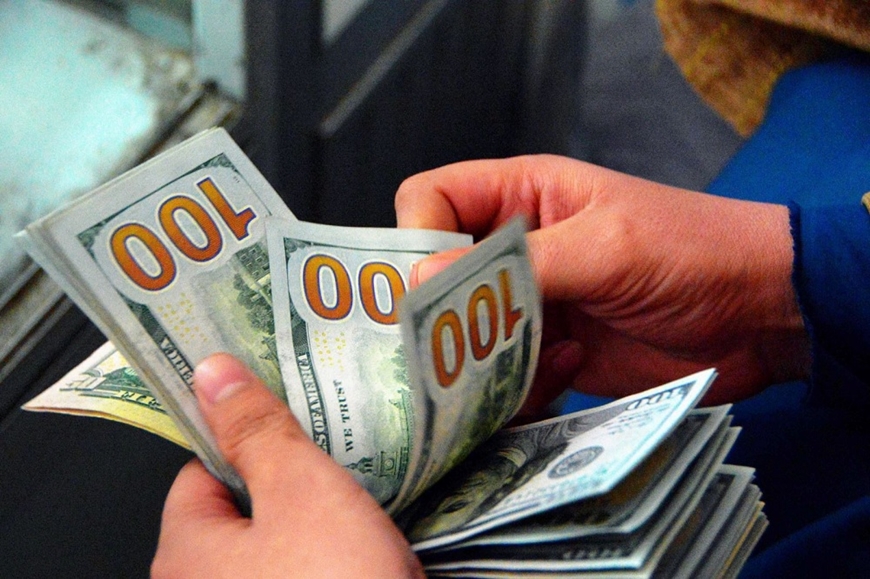Is the US dollar overvalued?
The IMF has just released its annual External Sector Report (ESR). Included in this is an assessment of how far currencies lie from levels that are consistent with external balance or sustainability.

Once again, the IMF suggests overvaluation in the US dollar and undervaluation for key eurozone countries, like Germany. Usually, this assessment is glossed over by the market but Steven Barrow, Head of Standard Bank G10 Strategy, thinks it has important things to say about how currency policy will evolve in both Washington and Brussels.
We don’t normally have much time for these measures of currency valuation. The FX market is too big and capital flows are too large to think that overvalued currencies are bound to fall, or that undervalued currencies will appreciate. However, in Steven Barrow’s view, there are two caveats.
The first occurs when currencies reach very extreme levels of undervaluation or overvaluation, but these tend to occur in emerging markets, not G10.
The second caveat, which is the one we are interested in, relates to the fact that valuation can have a bearing on currency policy. In the current setting. Steven Barrow thinks this is important when it comes to both the US and the eurozone. On the US side the unwritten assumption has to be that the US administration would prefer a weaker US dollar as this increases the pressure of the boot on the necks of foreign competitor nations that comes from tariffs.
Many people might reply that this is not the case because Treasury Secretary Bessent says that the US has a strong US dollar policy. But listen to what he says and it is clear that this relates to dominance, not value. The US dollar can still be dominant but weak. If the US dollar is overvalued on any measure (the IMF suggest that the real exchange rate is overvalued by something around 11%) then it aids the administration in its belief that the US is being treated unfairly, especially by those that it claims deliberately hold their currencies down, like Switzerland.
We have not yet heard President Trump bemoan US dollar strength as he did during his first term. This may seem surprising given that the US dollar’s real effective exchange rate is more than 10% higher than when Trump left office in 2021. Perhaps the focus on tariffs has been so dominant that the president has forgotten about the US dollar for the moment. We might also speculate that, if he is obsessed at all with financial markets at the moment, it is with lowering interest rates, and hence government debt costs, not lowering the US dollar. But, in time, US rates will likely fall as the Fed eases. That’s the good news. The bad news is that tariffs are unlikely to reduce the trade deficit and, if that’s the case, we feel that Trump will come back to bash the US dollar – and the market will listen.
The IMF’s ESR suggests that the US is battling an overvalued exchange rate. It also suggests that a number of key euro zone countries, particularly Germany, are being cushioned by an undervalued euro. The IMF puts the real value of the euro some 6.6%, or so, below where it should be to bring better balance to Germany’s external accounts. Admittedly, this does not apply to all euro zone countries. Italy, for instance faces a euro that is overvalued by just over 10%.
Now, as we said at the top, the FX market is not going to naturally move to a more ‘appropriate’ level for the euro. However, when we think about the view of eurozone policymakers towards the euro, this valuation metric gives the sort of insight that suggests that they won’t try to stand in the way of a stronger euro. We know that there has been talk that the ECB won’t like a stronger euro and ECB Vice President de Guindos has said that a euro/dollar rate above 1.20 makes the ECB’s job more complicated.
“We think this is a bit silly. For a start, the US dollar does not even have the biggest weight in the euro’s effective exchange rate; that’s the renminbi (using the BIS measure of the euro’s effective rate). And it is the trade-weighted value that’s of importance, not the US dollar rate. In fact, given some of President Lagarde’s comments about the eurozone having an opportunity to challenge the US dollar, we might be forgiven for thinking that the best outcome for the region is, in fact, euro strength against the dollar, provided this reflects success in chipping away at the US dollar’s dominant status”, said Steven Barrow.








